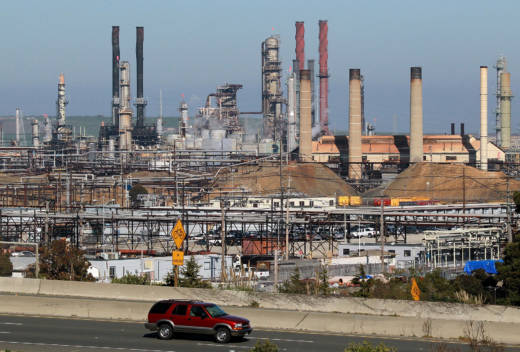"Chevron and PBF would rather spend endless dollars on their army of lawyers rather than implement a hard-won victory by frontline polluted communities to improve their health," he said.
Dr. Amanda Millstein, a Richmond pediatrician and co-founder of Climate Health Now, a group of California health professionals pushing to transition away from fossil fuels, took aim at Chevron, the oil giant that runs the refinery in her city.
"Chevron's shameless and predictable delay is coming at the expense of my patients' and their families' lives," Millstein said. "It is outrageous for the oil industry to sue a government entity for acting in the public's interest while fulfilling its charter."
Hollin Kretzmann, an attorney with the Center for Biological Diversity's Climate Law Institute, said the lawsuits fly in the face of research that shows fossil fuel pollution causes thousands of premature deaths in California every year.
"It's contemptible for Chevron to pay its pricey lawyers to sue rather than just install pollution-control equipment that many refineries already have in place," Kretzmann said. "Given this is a matter of life and death for frontline communities, Chevron's penny-pinching is completely immoral."
Jed Holtzman, a former policy analyst with 350 Bay Area, which pushed for the rule, said local advocates fought hard to get the district to put the life-saving rule in place.
"Bay Area communities should be outraged that Big Oil is trying to subvert democratic government action to protect our health," he said.
The change is not expected to affect the Bay Area's three other refineries. Valero's Benicia plant already has a wet-gas scrubber; Phillips 66 in Rodeo does not have a fluid catalytic cracking unit; and Marathon in Martinez has been idled for months.
Both Phillips 66 and Marathon also plan to convert their local facilities into renewable diesel plants in the coming years.
